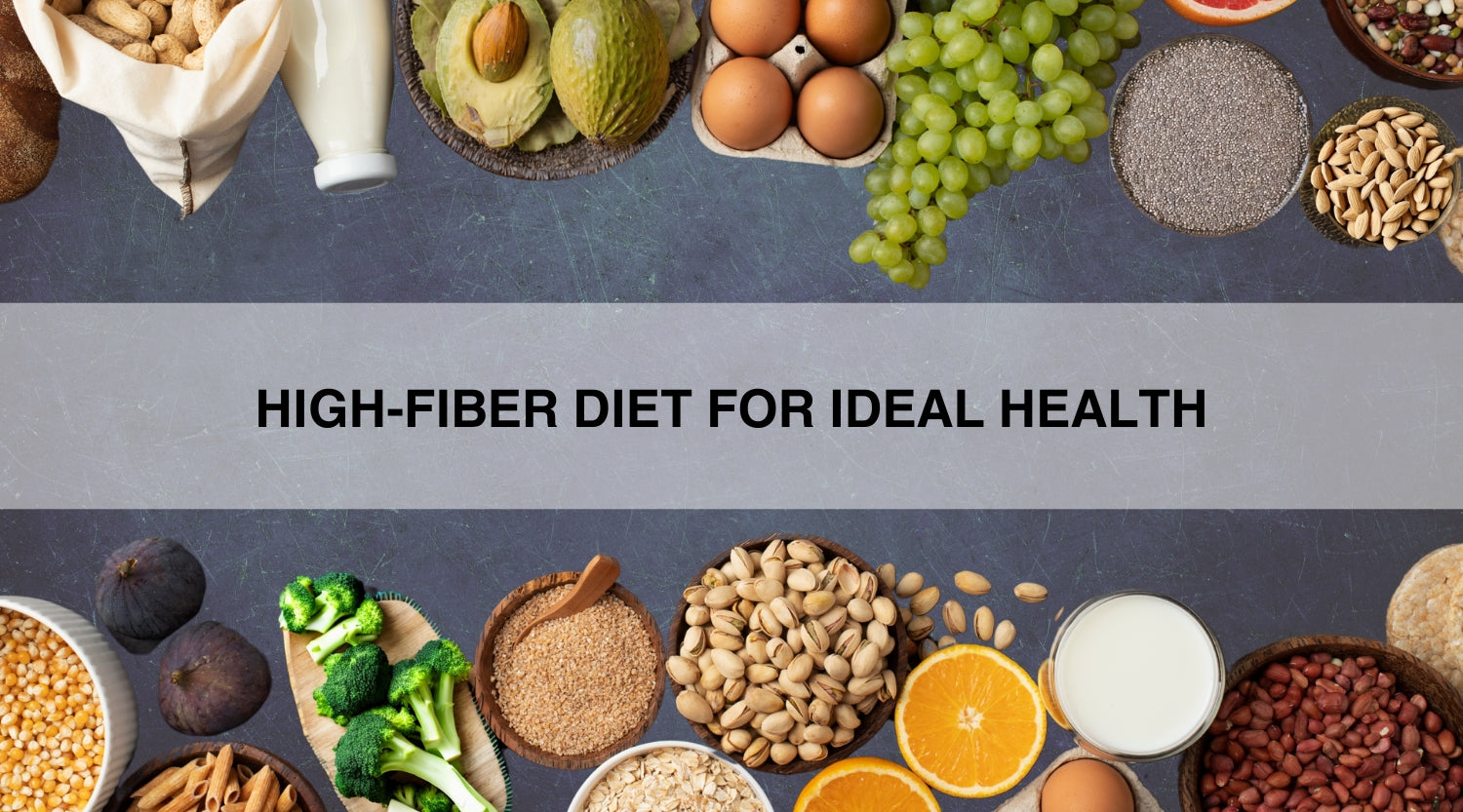
Maximizing Your Fiber Intake for Optimal Health: The Benefits of a High Fiber Diet
Understanding Fiber: Why It Is Essential in Your Diet
The Role of Fiber in Digestive Health
Fiber is crucial for a healthy gut. It helps keep you regular by adding bulk to stool, aiding bowel movements. This prevents constipation, reducing the risk of digestive issues like hemorrhoids. A diet rich in fiber also fuels the beneficial bacteria in your gut. These microbes play a key part in nutrient absorption and immune function. To maintain digestive health, adults should aim for 25-30 grams of fiber daily.
Fiber and Its Impact on Satiety and Weight Management
Fiber plays a big role in making you feel full after eating. It slows down digestion, helping you to eat less and manage your weight more easily. A diet rich in fiber can reduce hunger pangs and curb overeating. This can lead to weight loss or help in maintaining a healthy weight. Foods high in fiber like fruits, vegetables, whole grains, and legumes contribute to satiety. They provide volume without many calories, adding to their weight-management benefits. To enhance satiety and support weight control, aim for a balanced diet with a variety of high-fiber foods.
Fiber's Effect on Cholesterol and Blood Sugar Levels
Fiber plays a key role in managing cholesterol and blood sugar. It can bind with cholesterol in the gut, aiding its removal and lowering levels. This process helps reduce heart disease risk. As for blood sugar, soluble fiber slows digestion. This leads to a gradual release of glucose, preventing spikes. High-fiber diets support steady blood sugar levels, key for diabetes management.
How to Achieve a High Fiber Diet: Strategies and Tips
Incorporating Wholegrain Foods into Your Daily Diet
To boost your fiber, turn to whole grains. They're packed with it. Start by swapping white bread for whole wheat. Pick brown rice over white. Try whole oats at breakfast. Add barley to soups and stews. Use quinoa in salads and side dishes. Don't forget popcorn – it's a whole grain snack! Introduce these changes gradually. Your digestive system will thank you.
Balancing Fiber Intake with Water and Fluids
Increasing your fiber intake is crucial, but so is your water intake. When consuming more fiber, the body needs more water to help fiber pass through your system. Adequate fluid helps prevent constipation, a common side effect of high-fiber diets. Aim to drink at least 8 glasses of water each day. Also, include water-rich fruits and vegetables in your meals. These not only add to your fiber intake but also contribute to hydration. Remember to listen to your body's signals and increase fluids if you're experiencing dryness or thirst.
The Importance of Diverse Fiber Sources
To get the most from a high fiber diet, variety is key. Eating different fiber-rich foods will give you a broad range of nutrients. Include diverse sources such as fruits, veggies, nuts, seeds, and legumes. This can improve gut health and prevent dietary boredom. Aim to have a mix of soluble and insoluble fiber for balance. This helps to keep your digestive system healthy. Plus, it can make sticking to your diet easier in the long run. So, mix it up and enjoy the benefits of fiber!
Implementing a High Fiber Diet: Best Practices and Common Pitfalls
Monitoring and Adjusting Your Fiber Intake
Adopting a high fiber diet requires mindful tracking of your intake. Start by noting daily fiber amounts. See how you feel; too much fiber may cause discomfort. If this happens, cut back and then increase slowly. Aim for recommended levels based on age and gender. Adjust these over time to meet personal digestion needs. Keep a simple food diary to monitor progress. Use apps or tools to help track fiber in meals. Don't forget to check in with your body's response.
Avoiding Common Fiber-Deficient Mistakes
To avoid common mistakes related to low fiber intake, be mindful of your diet choices. Many people mistakenly think that all carbs are bad, which can lead them to cut out fiber-rich whole grains. Instead, focus on complex carbs. It's also easy to fall into eating processed foods that are low in fiber. Swap these for fresh fruits, veggies, and legumes. Another mistake is over-relying on fiber supplements. While they can help, they don't offer the same nutrients as whole foods. Lastly, don't forget to increase your fiber intake slowly. A sudden jump can cause digestive issues. Aim for gradual changes to give your body time to adjust.
Long-Term Health Benefits of Maintaining a High Fiber Diet
Adopting a high fiber diet has lasting effects. Over time, it can reduce the risk of chronic diseases such as type 2 diabetes, heart disease, and certain cancers. Consistent intake of fiber helps maintain a healthy weight. It also contributes to gut health, fostering beneficial bacteria. Fiber-rich foods make you feel full longer, aiding in weight control. Regular fiber consumption is linked to better blood sugar levels. By sticking to a high fiber diet, you also promote overall longevity.
Share
